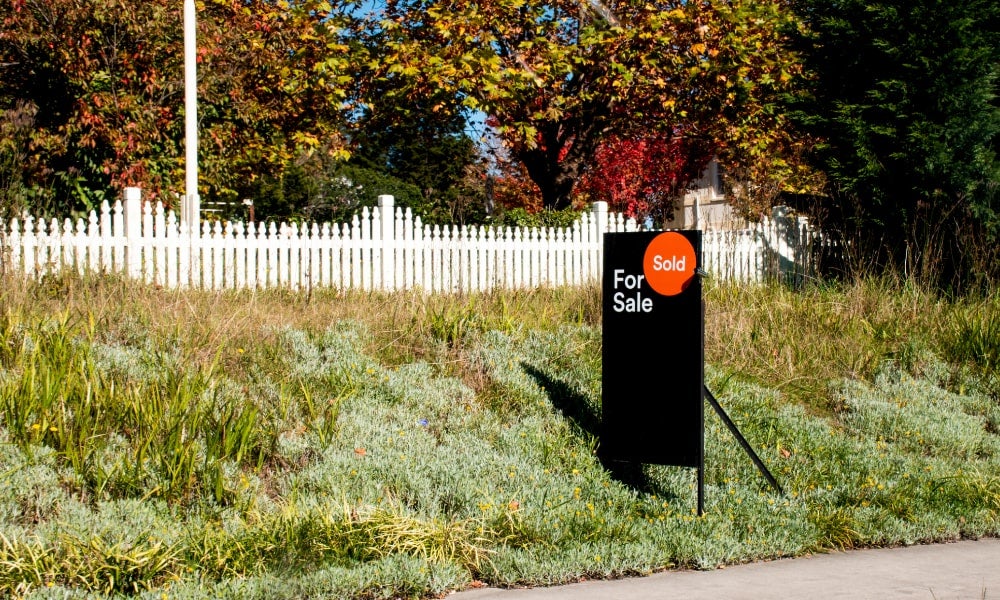Is it high time to tax unrealised capital gains on land?
Taxing unrealised capital gains on land could help reduce housing market inflation and reduce budget deficits, writes UNSW Business School’s Anthony Asher
The RBA’s rising interest rates are causing some people to worry more than the high inflation it is intended to cure. There is an alternative cure government does not seem to have considered. Taxing the unrealised capital gains on second properties would be less painful and would also address the deficit government has accumulated.
The main causes of current inflation seem to be the war in Ukraine, low interest rates and the stimulation from government deficits. There is not much we can do about the first; the RBA is normalising interest rates; but the government is finding it difficult to address the budget problem. In the US, the Fed estimates their stimulation has increased inflation by 2.5 per cent.

Housing inflation
Rising house prices and rents contribute directly to inflation. Over the past year, these housing components of the CPI went up by 6.7 per cent, second only to transport. High house prices also encourage owners to consume more from their increased net worth, so raising other prices.
The OECD reports that COVID-related stimulation pushed house prices up in all 37 countries for which they have data. Australian house prices rose by 20 per cent – putting us in the top five, which is not surprising given a significant portion of government stimulation was aimed at house construction. The recent drop in prices has not yet retraced even half of this excessive growth and further drops seem necessary.
The OECD report also suggests that governments should address house price inflation by looking at how housing is taxed. They also like capital gains taxes and even suggest that they should be applied to people's main residence above a threshold. Currently, Australian owner-occupiers pay no tax. Investors enjoy concessions in that they can deduct all their costs from their other taxable income – and pay a concessional rate of capital gains tax.
Read more: Stealth tax rises are eating into your income – but we know the solution
Taxing unrealised capital gains
Randall Wray, an American economist, suggests taxing unrealised capital gains would be an efficient way to tackle inflation. Taxing unrealised capital gains is unusual but does currently apply in Australia to international share investments. It could be extended to the capital profits from second and subsequent properties.
Little change would be required to current tax practice. Instead of waiting for the profit to be realised on the sale of a house, a provisional amount would be collected each year along with income tax. The first year it applied it would be based on the accumulated capital gain of every property, so a very low rate would have a significant impact. Over 2 million Australians own investment properties with values of probably over $1.5 trillion. If current profits were a third of this a 5 per cent tax would bring in $25 billion, which is more than half of the current deficit.
The tax could be refunded if prices declined in subsequent years and deducted from the capital gains paid on the final sale. The rate of tax could be adjusted subsequently to stabilise prices.
A tax on unrealised capital gains would make second properties less attractive because it would cost money each year. Those with holiday homes would be encouraged to rent them out so alleviating the shortage of rental properties as some councils are begging.

Advantages of taxing land
Although it would bring in less revenue, the tax could be even more targeted, efficient and fairer, if it was imposed only on the gain in land prices. The OECD encourages the use of land taxes in general because they are more efficient: unlike taxes on income or production, taxing it does not reduce the supply. Taxing land prices will reduce the relative price of land, and so will stimulate new building. This is because home buyers will be spending less money on land and have more to spend on building.
Taxing the land avoids taxing improvements to the property and will also catch benefits from zoning and new infrastructure to which people have not contributed. Land values are readily available from the Valuers General of each State.
And growth in land prices is significant. The OECD quotes research covering 14 major economies that finds house prices have risen more than four times in real terms in the past 70 years and that 90 per cent of the increase in Australia is due to the increased price of land.
Practicalities
There are obviously many questions relating to whether the impact would be as expected and how it might be implemented. For instance, one might make special provisions for people who are paying rent and would suffer hardship if they had to pay tax on a property they owned. They could be allowed to deduct their rent from the tax. The questions can, I am sure, be answered satisfactorily.
Subscribe to BusinessThink for the latest research, analysis and insights from UNSW Business School
Noisy opposition
The arguments for higher taxes to repair the budget and reduce inflation are strong and widely accepted, but there were election promises not to impose new taxes or raise the rate of existing taxes. Taxing unrealised capital gains would do neither. It would only bring forward what people would have to pay anyway when they sell. They would come mostly from those who have made huge profits – with no personal effort. Higher interest rates however will come mostly from recent borrowers who have made much smaller capital gains.
Responding to loud opposition from those who would resent paying any tax earlier than necessary will be more difficult. Their lobbying may be made easier because the parliamentarians themselves are in this category. Perhaps they can show their courage and integrity by adopting the policy anyway!
Why not? We have lower house prices anyway.
Anthony Asher is an Associate Professor in the School of Risk & Actuarial Studies at UNSW Business School. He is also a member of the Council of the Actuaries Institute and is active in the actuarial profession with involvement in research and policy development. For more information please contact A/Prof. Asher directly.
